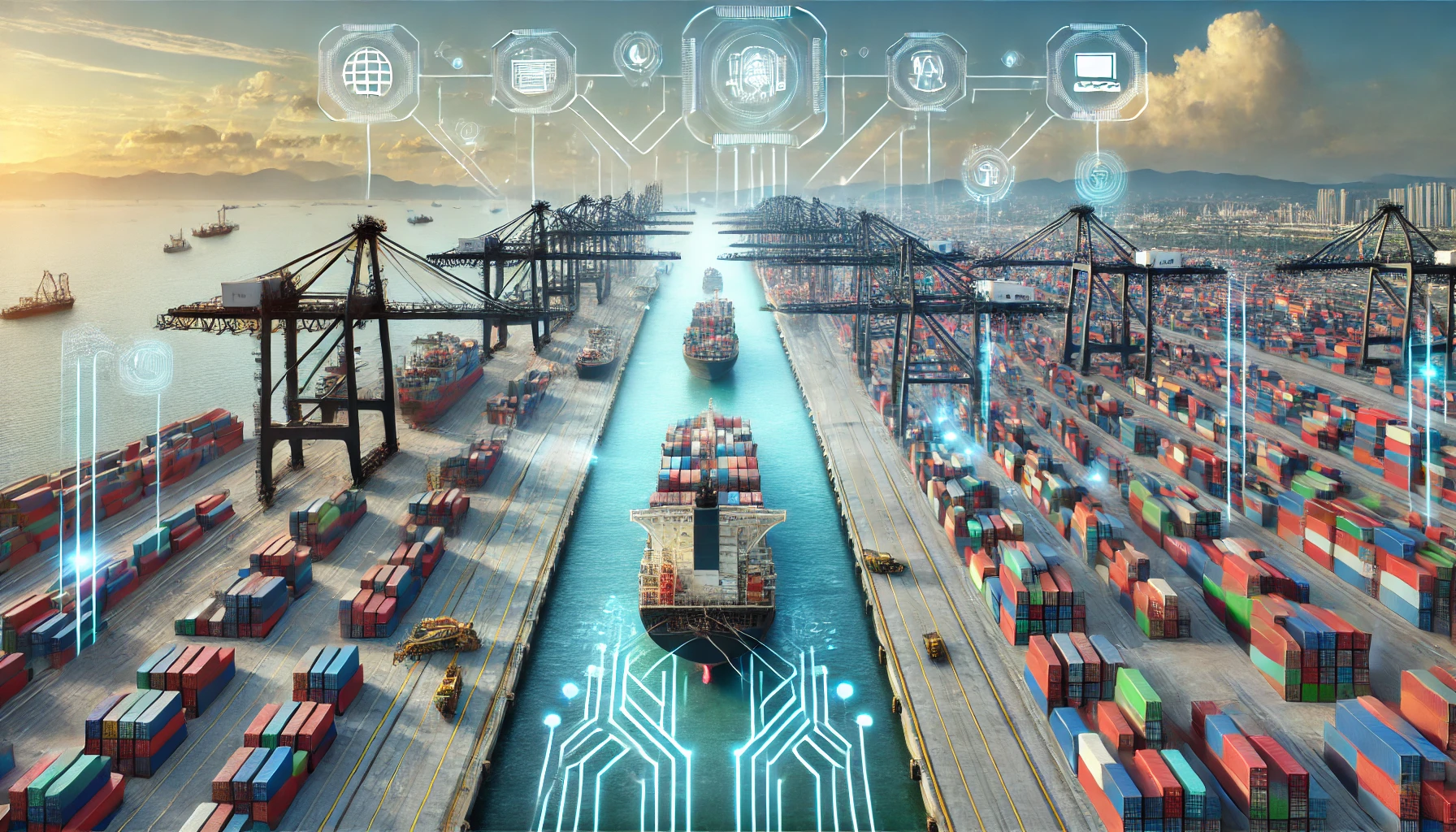Transforming Global Trade: The Role of Port Community Systems in Modern Logistics
The World Bank and IAPH report highlights the critical role of Port Community Systems (PCS) in enhancing efficiency, transparency, and collaboration in global trade operations. Despite widespread adoption in developed countries, developing nations face challenges in implementing PCS due to financial and technical constraints.

The World Bank, in collaboration with the International Association of Ports and Harbors (IAPH), has produced an extensive report on the evolution and global adoption of Port Community Systems (PCS), exploring their vital role in facilitating international trade. These digital platforms enable seamless communication and data exchange between various stakeholders in port operations, including shippers, carriers, terminal operators, Customs authorities, and other regulatory bodies. The PCS improves efficiency, transparency, and security in the increasingly complex world of global trade. The research emphasizes how the implementation of PCS is becoming crucial as the volume of international trade continues to rise and the need for more efficient supply chain management grows.
Evolution of PCS: From Communication Tool to Integrated Platform
PCS has evolved significantly since its inception in the 1980s. Initially, these systems were designed to enhance communication between port stakeholders, helping to reduce paperwork and improve the overall speed of operations. Over the past few decades, however, PCS has transformed into a sophisticated digital tool that integrates real-time information sharing, supply chain visibility, and collaboration between various entities in the port ecosystem. Today, PCS platforms are often cloud-based and can handle complex tasks such as cargo tracking, vessel scheduling, berth planning, Customs clearance, invoicing, and payments. The integration of emerging technologies like Artificial Intelligence (AI), blockchain, and the Internet of Things (IoT) has pushed PCS to new heights, allowing for predictive modeling, proactive risk management, and optimized resource allocation. These technologies are helping PCS become a powerful tool for data-driven decision-making in port operations.
Global Adoption: A Divided Landscape
Despite the clear advantages, PCS adoption remains uneven across the globe. High-income countries, particularly in Europe and Asia, lead the way in implementing these systems. Countries like France, Germany, the Netherlands, and Singapore have developed robust PCS platforms that have become essential to their trade and logistics infrastructure. Many of these nations have even made PCS implementation mandatory in their ports. However, developing countries, particularly in regions like Africa and Latin America, have encountered significant challenges in adopting PCS due to financial limitations, a lack of technical expertise, and other infrastructural hurdles. The report highlights that over 90 percent of ports in low- and middle-income countries have not yet adopted PCS, although several nations have initiated projects aimed at modernizing their port systems. For instance, countries like India and Chile are implementing PCS to enhance their trade facilitation and logistics processes. In some cases, digitalization projects are underway, but the progress is slow.
Benefits of PCS: Reducing Costs and Boosting Efficiency
The benefits of PCS are far-reaching and diverse. One of the most immediate advantages is the reduction in trade costs, particularly by automating and streamlining processes that previously required extensive manual input and paperwork. PCS reduces the time spent on Customs clearance, allows for better coordination between stakeholders, and minimizes delays caused by miscommunication or a lack of information. In addition to cost savings, PCS improves overall transparency and accountability in port operations. With real-time tracking of cargo and vessels, stakeholders can monitor the movement of goods more effectively, making it easier to detect and address potential risks, fraud, or discrepancies. This increased visibility helps build trust between different entities in the supply chain, which can lead to smoother operations and enhanced collaboration.
Key Challenges: Implementing PCS in Developing Nations
The report also emphasizes that PCS is particularly important for Small Island Developing States (SIDS), which rely heavily on maritime trade due to their geographical isolation. Implementing PCS in these countries can significantly improve their trade capacity by enhancing the efficiency of local supply chains. The mandatory adoption of Maritime Single Window (MSW) systems under the International Maritime Organization (IMO) presents an opportunity to integrate PCS into port operations in SIDS. By leveraging MSW as the first module of PCS, these countries can gradually build more comprehensive systems to manage port logistics and trade facilitation.
However, the implementation of PCS is not without its challenges. The report outlines several key obstacles, including securing adequate funding, fostering stakeholder collaboration, and creating a supportive regulatory framework. Successful PCS implementation requires careful planning, with a focus on governance, operating models, financial sustainability, and technical architecture. The involvement of both public and private sectors is essential to overcome these hurdles, and governments must play an active role in supporting PCS projects through policy reforms, investments, and capacity-building initiatives.
The Future of PCS: A Path Forward for Global Trade
The report from the World Bank and IAPH highlights the growing importance of Port Community Systems in modern global trade. As trade volumes continue to increase, ports must embrace digital tools like PCS to remain competitive and efficient. The future of PCS is promising, particularly as new technologies such as AI, IoT, and blockchain continue to evolve. By integrating these advancements, PCS will become an even more powerful tool for managing the complexities of global supply chains. However, for PCS to reach its full potential, significant investments in infrastructure, policy support, and international collaboration are needed, especially in developing countries and regions that have been slow to adopt these systems.
- FIRST PUBLISHED IN:
- Devdiscourse










